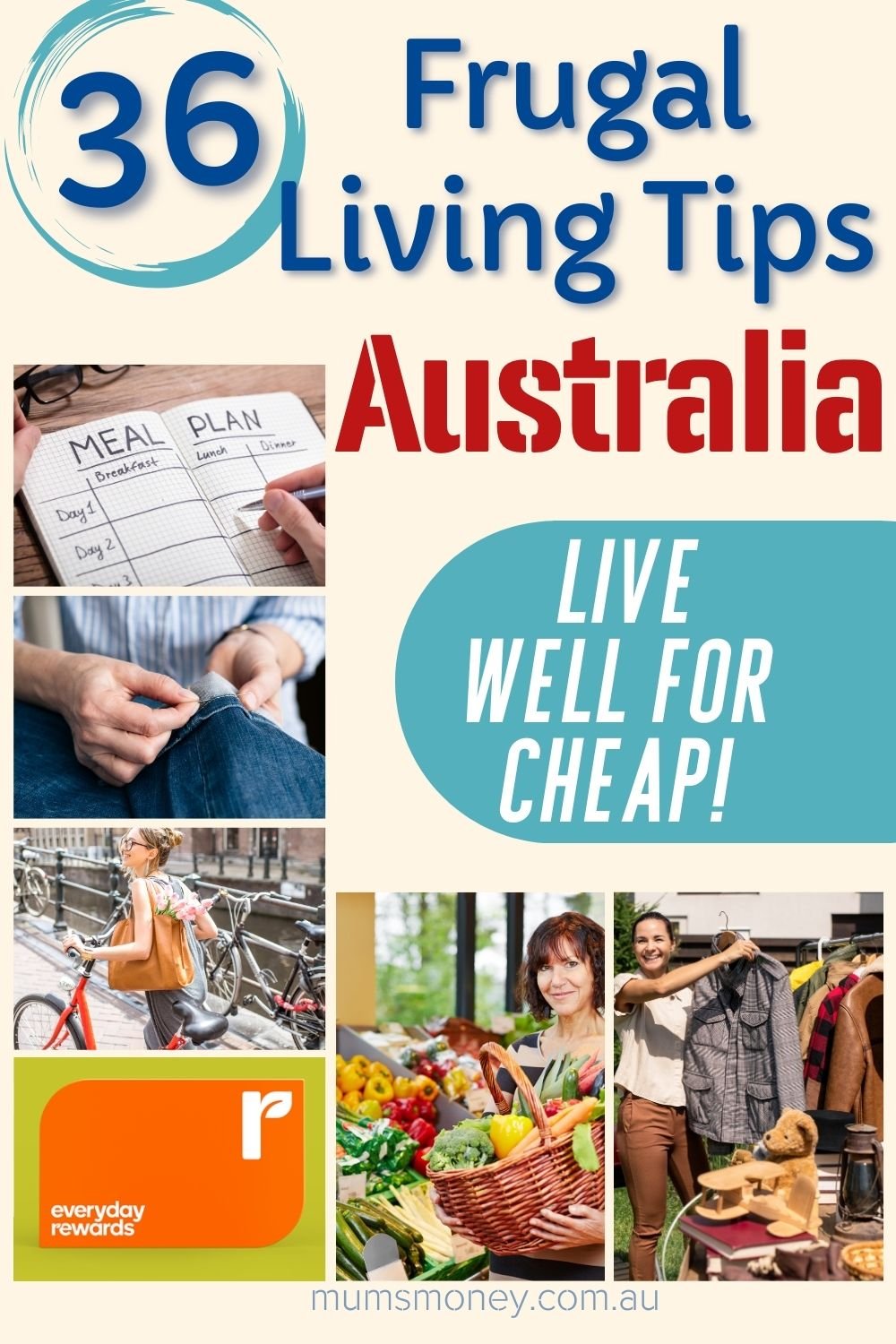Whether you’re paying off debt, saving for an emergency fund, a home deposit or your next big overseas trip, or have found yourself in some financial stress, living frugally can make a big difference to your family’s finances.
These frugal living tips will help you learn how to live simply and cheaply.
36 Tips for Living Frugally in Australia (2024)
Contents
- 36 Tips for Living Frugally in Australia (2024)
- 1. Make a financial plan
- 2. Switch your supermarket shop.
- 3. Join Your Supermarket’s Loyalty Program
- 4. Check Out The Weekly Sales And Discounts
- 5. Switch to home brands
- 6. Grow Your Own Herbs And Vegetables
- 7. Switch Out Meat And Fish For Plant-based Alternatives
- 8. Plan Your Meals
- 9. Opt For Less Pre-made
- 10. Prepare A List
- 11. Cooking At Home
- 12. Make It A Night In
- 13. Buy Reusable Items
- 14. Choose The Cheapest Petrol Station
- 15. Walk, Bike, Or Catch Public Transport
- 16. Carpool Instead Of Driving Solo
- 17. Shop Around for Utilities
- 18. Wash Your Clothes On A Cold Wash
- 19. Hanging Your Clothes Out To Dry
- 20. Learn basic sewing skills
- 21. Build Up A New Skill
- 22. Buy A Cheaper Brand
- 23. Browse Second-hand Op Shops
- 24. Be open To hand-me-downs
- 25. Second-hand Is Also A Great Option
- 26. Good Deals Can Be Found In Second-hand Bookshops
- 27. Try Out Different Products For Free
- 28. Hold Out For Seasonal Sales
- 29. Buy Out Of Season
- 30. Get Free Gift Cards Filling Out Online Surveys
- 31. Work Out At Home For Free
- 32. Try Online Workout Programs
- 33. Track Your Spending
- 34. Use Cashback Sites
- 35. Holiday on a shoestring
- 36. Maximise birthday freebies
- Frequently Asked Questions (FAQ) – Frugal Living in Australia
1. Make a financial plan
One great way to stay motivated when you are trying to live frugally is by setting a big-money goal. Maybe it’s a house deposit, early retirement, family holiday to Hawaii, or a motorbike.
Whatever it is, make it big. To get there, you’ll need a financial plan.
I’m not advocating paying a financial advisor, although you totally could do that. I believe you should start by reading ‘The Barefoot Investor’ by Scott Pape.
You should be able to get it at the library, but you might have to wait on hold for a while.
It is a very easy to read, step-by-step guide to managing your money in Australia. The book has changed many lives and can give a really clear structure to your financial planning, for a fraction of the cost of a professional.
Tip: Get a free 30 day trial of Kindle Unlimited and you can download and read the book for free (if you don’t have a Kindle, you can use the Kindle app. This is what I use on my iPad).
2. Switch your supermarket shop.
Supermarkets like Aldi typically offer cheaper brands and lower prices than Coles or Woolworths.
Even if you don’t fully make the switch, start off your shop in an Aldi, IGA or another local discount store to get at least some of your grocery shop cheaper, and then get those particular items from Coles, Woolworths, or other pricier stores.
3. Join Your Supermarket’s Loyalty Program

Get hooked up to your favourite supermarket’s loyalty program.
Whether it’s Flybuys with Coles or Everyday Rewards with Woolworths, you can earn points and receive discounts on a whole range of things.
4. Check Out The Weekly Sales And Discounts
Check out the weekly sales and discounts at supermarkets before you hit the shops. You can see the weekly pamphlets online, or you can get a hold of them in-store.
Make the most of the weekly specials, especially for higher-priced items.
5. Switch to home brands
If you’re trying to cut back on your living costs, switching to home brands or cheaper brands can be a really easy way to save money.
6. Grow Your Own Herbs And Vegetables
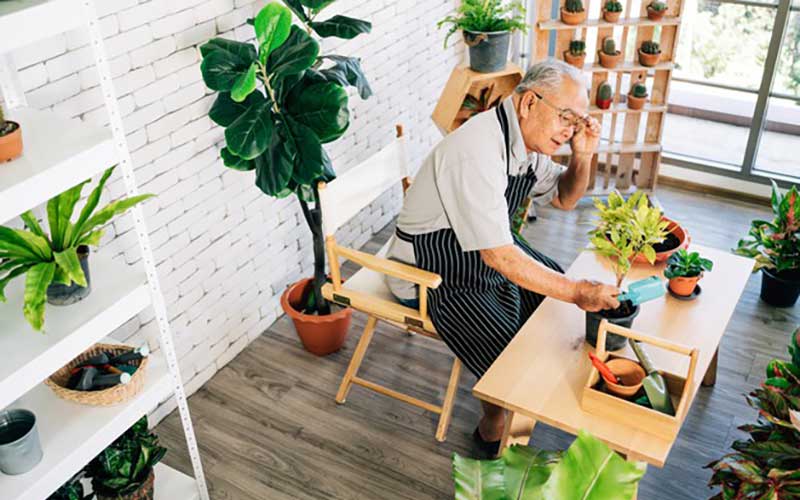
If you’ve got a bit of space for a garden or even a balcony garden, spending a little to get started with growing some of your own herbs and vegetables can pay off, especially for pricier herbs and produce.
7. Switch Out Meat And Fish For Plant-based Alternatives
Switch out meat and fish for plant-based alternatives, even if just for a few days every week.
Animal-based products are more expensive than simple plant-based alternatives like fresh produce, canned or dried vegetables and beans, or tofu.
8. Plan Your Meals
Plan your meals to include cheaper pantry ingredients wherever possible. This could mean more vegetables, beans, and grains, with items like rice, pasta, potatoes, and beans making more of an appearance on your dinner table.
Check out our meal planning tips here
9. Opt For Less Pre-made
Opt for less pre-made, instant, or highly processed ingredients or meals, as these items are sometimes a bit pricier too.
10. Prepare A List
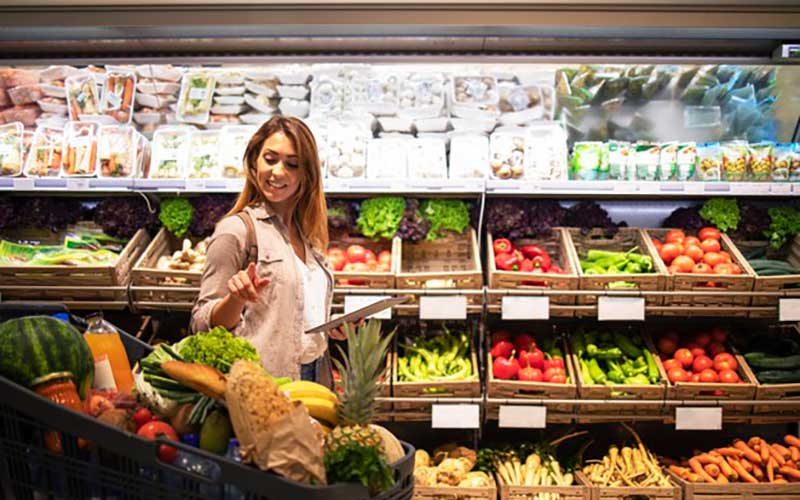
Prepare a list of 7 or 10 easy-to-make and affordable meal recipes so that you always have something to quickly whip up without blowing your budget.
11. Cooking At Home
Cooking at home more often, instead of eating out or getting food delivered, can quickly add up to more savings!
12. Make It A Night In

Similarly, make it a night in instead of a night out with friends!
Order your drinks online beforehand, as comparing and buying online means you can get the best deals, compared to your local bottle shop.
You could even learn to make your favourite cocktail!
13. Buy Reusable Items
Buy reusable items rather than disposable items whenever possible to save money in the long run.
Modern reusable options exist for sanitary products, makeup and toiletry cotton rounds, earbuds/swabs, razors, nappies, baby cleaning wipes, dishcloths, grocery bags, and more.
Search online to see if there is a reusable option for items that you know you use a lot, and you can soon be making savings.
14. Choose The Cheapest Petrol Station

Compare petrol stations and plan for the best day to fill up your car.
Petrol cycles vary across Australia and can vary throughout the year (except for Perth, where Tuesday is the cheapest day).
Get to know your local petrol station to see what day is cheapest, or use the Simples website or app to compare petrol stations in your local area at any given time.
Related: BP Rewards Guide: Make Your Petrol Spend Work Harder
15. Walk, Bike, Or Catch Public Transport
Walk, bike, or catch public transport instead of driving. This saves you money, is good for the environment and can be good for your health as well.
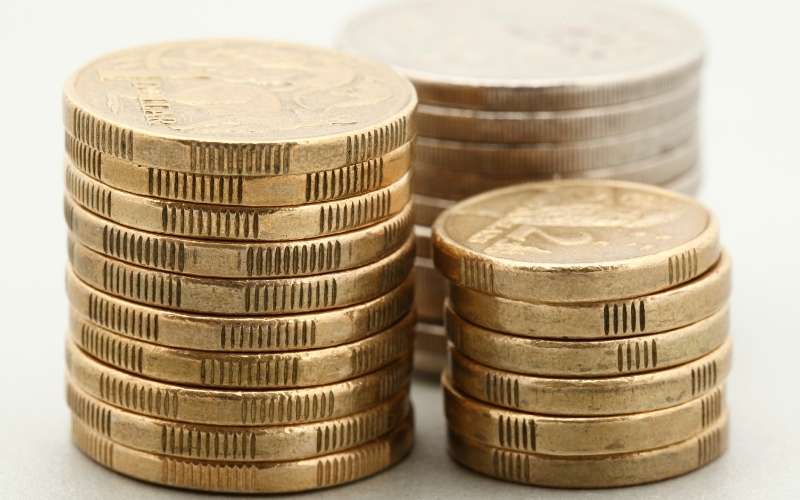
16. Carpool Instead Of Driving Solo
Carpool instead of driving solo. Could you and a few friends take turns doing the school run or carpool to your local bus stop or train station for the rest of your daily commute?
17. Shop Around for Utilities
For home, car, health, life, pet, or travel insurance, income protection, electricity and gas utilities, home loans, and credit cards, use a comparison website to ensure you are getting the best deal.
Use a website like Compare Broadband for home internet to get the best deal possible for your family’s needs.
18. Wash Your Clothes On A Cold Wash
When it comes to keeping your utility bills down, one of the easiest things to do (that’s also great for your clothes!) is to wash your clothes on a cold wash.
19. Hanging Your Clothes Out To Dry

Also, hanging your clothes out to dry, whether outside or inside, instead of using a dryer, will save you money and help your clothes last longer.
20. Learn basic sewing skills
When a button comes loose on your clothes, or they get a little tear or rip, don’t just throw them out. Search online to learn how to extend the life of your clothes and save yourself the cost of replacement items.
21. Build Up A New Skill
If there’s an odd job or project around your home that you want to get done, consider doing it yourself or with some friends.
Learn how by watching YouTube videos or searching online for instructions, and build up a new skill you can be proud of in the process!
Some areas even have tool libraries that you can borrow from instead of having to buy tools.
22. Buy A Cheaper Brand

Don’t get caught up with branded gadgets.
Whenever possible, buy a cheaper brand for your laptop, phone, or other tech gadgets. This can save you hundreds or even thousands!
23. Browse Second-hand Op Shops
The temptation to spend on clothing and accessories can be hard to deal with.
But just because you’re spending less doesn’t mean you can’t have new-to-you things.
Browse second-hand op shops like the Salvos or Vinnies, garage sales, online marketplaces like Facebook Marketplace, Ebay, or Gumtree, or apps like Depop or Vinted, for some fantastic pre-loved finds.
24. Be open To hand-me-downs
If you want to avoid spending on clothing and accessories altogether, let friends and family know that you are open to hand-me-downs, particularly if you have kids.
25. Second-hand Is Also A Great Option
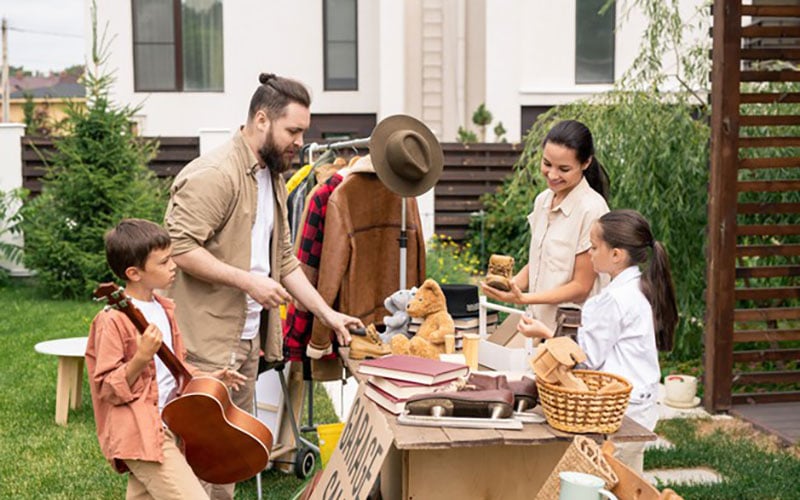
Second-hand is also an excellent option for kid’s toys, home furnishings, and garden items.
Check out Gumtree or Facebook Marketplace.
26. Good Deals Can Be Found In Second-hand Bookshops
If you’re a book lover, or if you have kids who need books, don’t panic!
Good deals (including on school textbooks) can be found in second-hand bookshops and online marketplaces like Gumtree, Facebook Marketplace, or AbeBooks.
Plus, your local libraries (online and in-person) are a fantastic resource for borrowing books.
27. Try Out Different Products For Free

Who doesn’t love a freebie? Free samples can let you try out a new product or new brand without any payment.
This is helpful when you want to test a brand before buying, plus is a great way to try out different products for free!
28. Hold Out For Seasonal Sales
Hold out for seasonal sales. Boxing Day sales, end-of-financial-year sales, plus mid-season sales, are pretty standard now.
So, if you can, wait to buy until your items come on sale.
29. Buy Out Of Season
Buy out of season. If you know you and your family are going to need some new winter clothing next season, buy winter items when they’re on sale over the summer.
30. Get Free Gift Cards Filling Out Online Surveys
Did you know that you can get free gift cards by filling out online surveys, scanning your purchases into an app, or even switching your search engine?
It’s true.
Plenty of Australians earn gift cards and cash taking surveys each year, often enough to pay for Christmas presents.
Taking surveys is worth checking out if you could do with some extra money.
We rounded up the best paid surveys in Australia for those of you looking to earn a little extra money from home.
31. Work Out At Home For Free
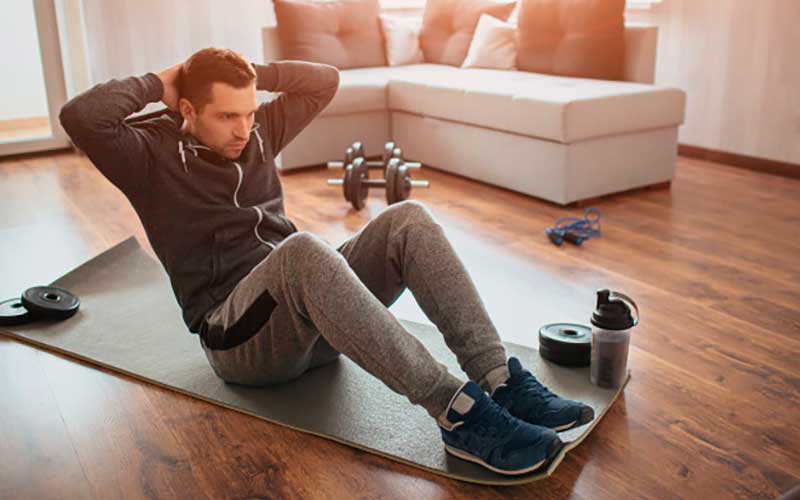
Use your local neighbourhood, parks, and walking trails, and/or work out at home for free or with just a few initial costs for some affordable home gym equipment instead of paying for an expensive gym membership.
32. Try Online Workout Programs
Or, online workout programs or coaching can sometimes be cheaper than regular gym memberships or face-to-face coaching.
33. Track Your Spending
Of course, one of the most important things to do is to track your spending to stay on budget.
Your banking app might already let you categorise your spending to do this, or you can download a spending or budget-tracking app.
34. Use Cashback Sites
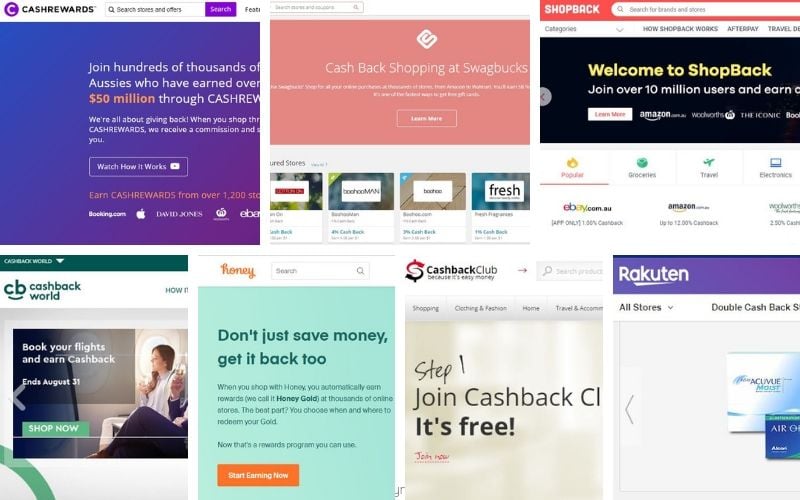
Use cashback sites for your purchases. Cashback websites give you some of your money back on your purchase from an online retailer that you accessed via a web link on the cashback site.
We recommend starting with Cashrewards and Shopback.
35. Holiday on a shoestring
Living simply and cheaply doesn’t mean that you shouldn’t have some fun!
Find cheap holiday deals at Last Minute or Expedia, affordable accommodation at Airbnb, or opt to go on a cheap and cheerful camping holiday in either a rented campervan, caravan, or tent.
36. Maximise birthday freebies

With the right planning, you could have a fantastic day full of free food, coffee and more by getting familiar with all the birthday freebies offered by various retailers across Australia.
Check out this monster list of freebies that businesses give away when it’s your birthday!
Frequently Asked Questions (FAQ) – Frugal Living in Australia
How can I be frugal in Australia?
Whilst Australia has a high cost of living, it’s not impossible to be frugal in Australia. Strategies like shopping second-hand, house-hacking, meal planning and being careful when grocery shopping can make a huge difference to your living costs.
How can I reduce my cost of living in Australia?
Try to focus on your big three expenses – house, transport and groceries. Saving on these expenses will make a huge difference to your cost of living.
Examples include restructuring your mortgage if you own to renting a smaller property if you rent.
Driving less often and replacing short trips with walking or cycling can slash your transport costs. Meal planning, shopping the specials and maximising points from loyalty programs can go a long way to reducing your grocery bill.
